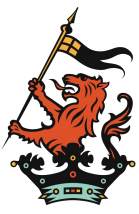Wellington College is an independent, co-educational day and boarding school for pupils aged between 13 and 18 years. Opened in 1859, it is a Christian foundation which welcomes pupils from all faiths or none. The school is a charitable company and is overseen by a governing body. Since the previous inspection a new Master and chair of governors have been appointed. The school comprises a senior school and a sixth form. lt has ten boarding houses for boys and six forgirls, and two day houses.
What the school seeks to do
The school aims to equip pupils with the skills, philosophy and mind-set for happy, successful and fulfilling lives. lts objective is to enable pupils to understand their responsibilities to others and tomake a positive contribution to society. It aspires to offer an education which matches the very beststandards internationally.
Pupils come from come mainly from a range of professional backgrounds. Most of the pupils who live or are based in the United Kingdom reside in London and the south-east, although a small number come from further afield. A very small minority of boarders come from families based in over 40 different countries overseas. Nationally standardised test data provided by the school indicate thatthe ability of the pupils is above average. The school has identified 140 pupils as having specialeducational needs and/or disabilities which include a range of specific learning difficulties, all of whomreceive additional specialist help. Also, 3 pupils in the school have an education, health and care plan. A total of 38 pupils speak English as an additional language, 10 of whom receive support for theirEnglish. Data used by the school have identified 116 pupils as the most able in the school 's population, and the curriculum is modified for them.
The school aims to ensure that pupils leave as well-educated, courageous, compassionate, committed and self-confident young women with a love of learning, a moral compass and a sense of humour.
Day pupils come from a wide variety of backgrounds and generally live within a 45-minute drive of the school. Weekly boarders largely come from London and south east England and international boarders represent a very wide variety of countries. Data provided by the school indicate that the ability of pupils is above average compared to those taking the same tests nationally. The school has identified 75 pupils as having special educational needs and/or disabilities (SEND), mostly mild specific learning difficulties such as dyslexia, of whom 47 receive additional support. No pupil in the school has an education, health and care (EHC) plan. English is an additional language for 77 pupils, of whom 48 receive support. A range of opportunities and extension activities are provided to support the needs of the more able and of all pupils who wish to access them.


 Wellington College is a school like no other. Where many focus on examination results and view league table position as the main criterion for success, the whole ethos of Wellington is focused on each and every individual who passes through our gates.
Wellington College is a school like no other. Where many focus on examination results and view league table position as the main criterion for success, the whole ethos of Wellington is focused on each and every individual who passes through our gates.

